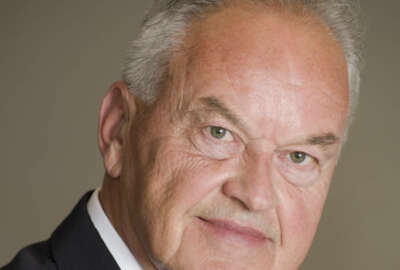
Where will you be in August 2017?
If you have a solid, safe career government job, does it really matter who the next president is? Senior Correspondent Mike Causey asked feds and the answers may...
Finding areas of agreement between the two top presidential candidates isn’t easy:
Donald Trump says the country is in big trouble now and it will get worse if his opponent is elected. Among other things, he credits the former Secretary of State and President Barack Obama for creating ISIS.
Hillary Clinton says the country is in good shape and getting better, unless you-know-who-is elected. She says that Trump is a loose cannon, a creature of Wall Street who is not fit to be president of the U.S.
The only thing both sides agree on is that if their opponent wins, it could be curtains for the U.S.A.
The media, while deploring things right and left, pretends to hate this ugly campaign. And to express shock and horror at the almost daily implosions. But most radio, TV and newspaper outlets are secretly loving it. And nobody has refused to accept the political advertising revenue that is flowing in from both sides.
Federal workers who are worried about what the next president and Congress will do to them have good reason. Republicans (with few exceptions) don’t seem to like bureaucrats. Democrats (with a few exceptions) seem to take them for granted.
Sponsored Content: How secure is your network? Share your opinions in a Federal News Radio survey.
The news on the fed front last week was mostly not-so-good. Yet another Heritage Foundation study reported that feds are better off than the vast majority of their private sector counterparts. Good reason, it said, to save billions by reeling in pay and benefits.
Other groups issued reports on the impact of a new president (of either party) on the career civil service.
This column asked feds where they thought they would be this time next year. Better off, or not? Working or in a shutdown mode? Still employed or looking for work?
Here are some of the comments we got back, starting with a long-time fed who has worked both sides of the Potomac, and the legislative and executive branches and is now working on Capitol Hill:
”Hope you get a lot of responses to your question. I am a 30-year fed that is just below the SES level. I am a civilian who has worked for DoD and several domestic agencies, so I have seen several administrations from all sides of the Potomac. Right now, I am on the Hill learning how the sausage is made, adding more tiles to the mosaic. Here is where I think we will be in 2017— and it doesn’t matter which one is elected.
- We will have a budget for FY 17 that was passed in December 2016, but funding for FY 18 will not be certain. You will be writing about a potential shutdown. Congress (which will remain narrowly in Republican control) will be considering a CR minus at best (something like 2 percent less than what we got in FY 17).
- We will be actively working through the first real outsourcing push since last century. Civilian career civil service jobs GS-13 and below separated into commercial and non-commercial activities. Those that aren’t commercial may be eliminated or converted to “term” positions. New entry level feds will be as likely to come in as “term” employees as career. There will be a goal to grow “term” positions.
- There will not be a mass exit by the SES or old timers — they will have nowhere to go, but they will grumble more that things are harder than they use to be.
- There will be a few new laws or mandates driven by a few major events that shape priorities (either manmade or natural disasters). However, largely in August 2017 we the civil service (and federal government as a whole) will be soldiering on with a few less people and a little less money reacting to events, not shaping our future.
While somewhat depressing and boring — our future is stable no matter who is President.” — Ann of the Senate
Good morning Mike,
August 2017 will find me actively preparing for retirement. I continue to discover that I am just an analog guy in an increasingly digital world. — Jim S.
I hate to be in the it-doesn’t-matter-camp, but it probably won’t matter. President Trump and Congressional Republicans would like to use federal civil servants as whipping boys. The Republicans never seem to learn that shutdowns only hurt the public, and their (GOP) image. Democrats are no better. Three pay freezes under President Obama. And, as you have pointed out before, the federal pay act of 1990 never worked because President Bill Clinton started the bipartisan phased catchup-with-industry plan by proposing a 0 percent pay raise. I may sit this one out.” — Rex
Nearly Useless Factoid
By Michael O’Connell
On July 17, 1902, Willis Carrier designed the first modern air conditioning system.
Source: Carrier
Copyright © 2025 Federal News Network. All rights reserved. This website is not intended for users located within the European Economic Area.
Mike Causey is senior correspondent for Federal News Network and writes his daily Federal Report column on federal employees’ pay, benefits and retirement.
Follow @mcauseyWFED




